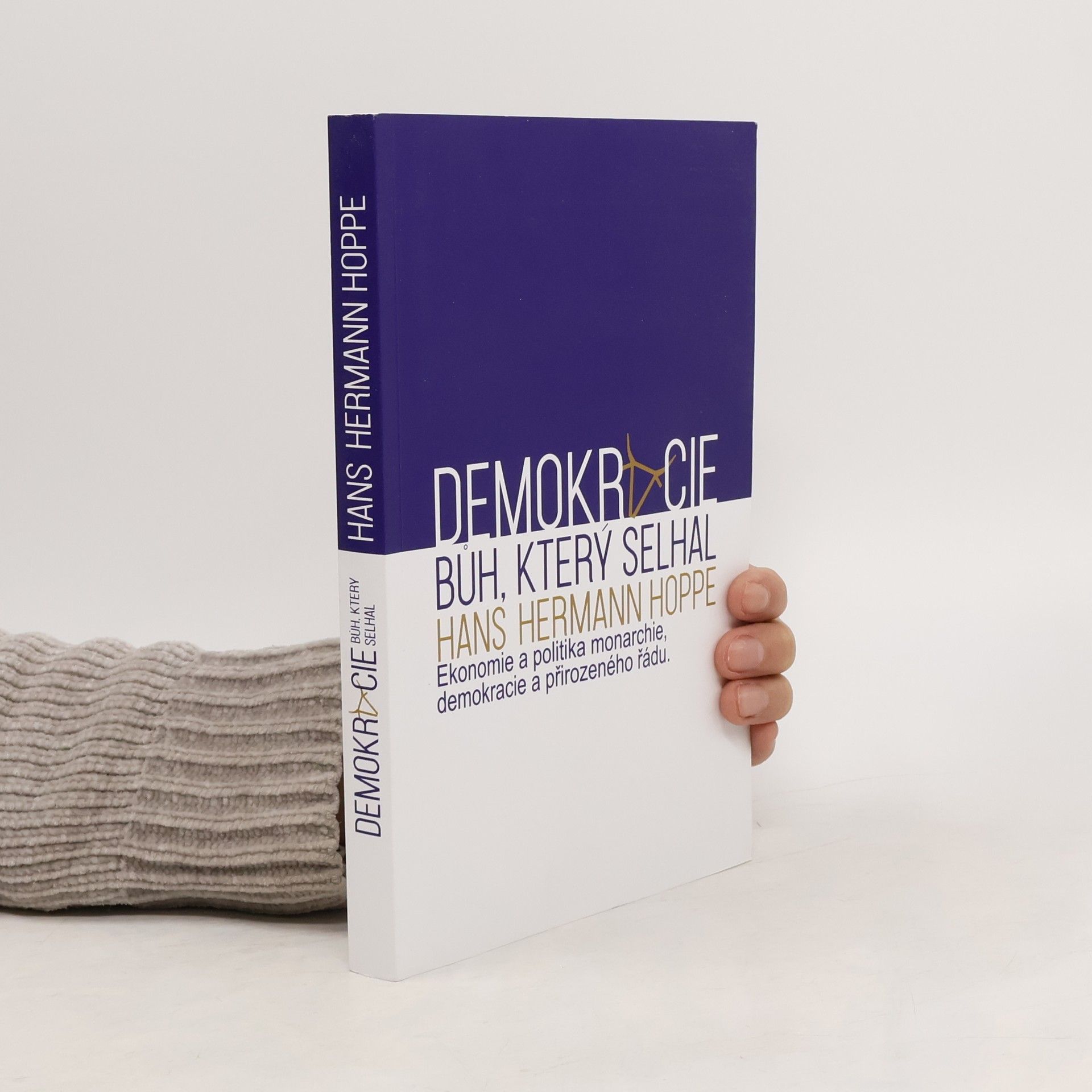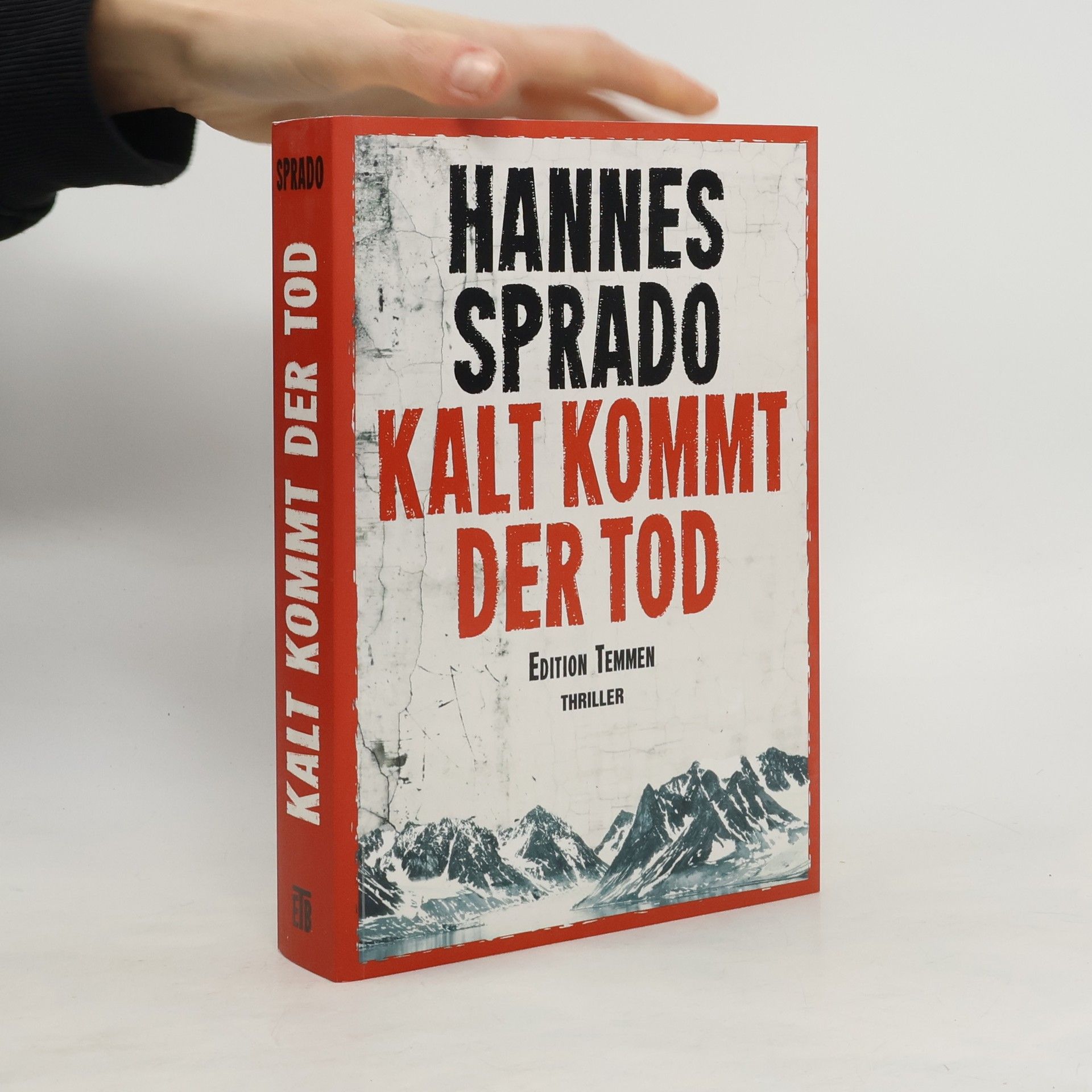Die Grundlagen des Libertarismus werden in diesem Werk von Hans-Hermann Hoppe umfassend behandelt, wobei das Nichtaggressionsprinzip im Mittelpunkt steht. Hoppe kritisiert die Perspektive der Linkslibertären und differenziert sich durch seine Ausrichtung auf die politische Rechte. Er beleuchtet die Prinzipien, die seiner Ansicht nach eine klare Abgrenzung zwischen verschiedenen libertären Strömungen ermöglichen und bietet eine tiefgehende Analyse der ideologischen Unterschiede.
Hans-Hermann Seiffert Book order (chronological)

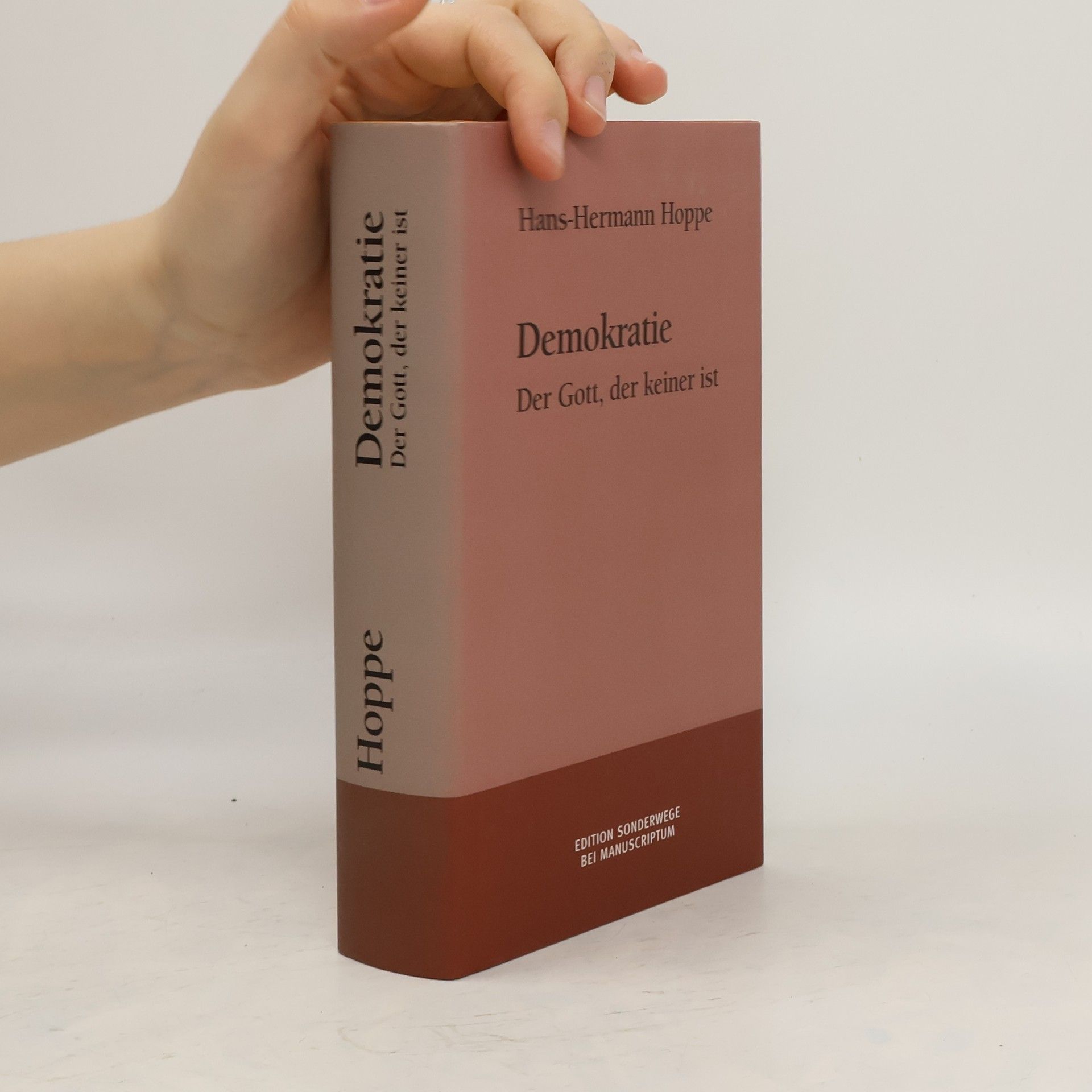

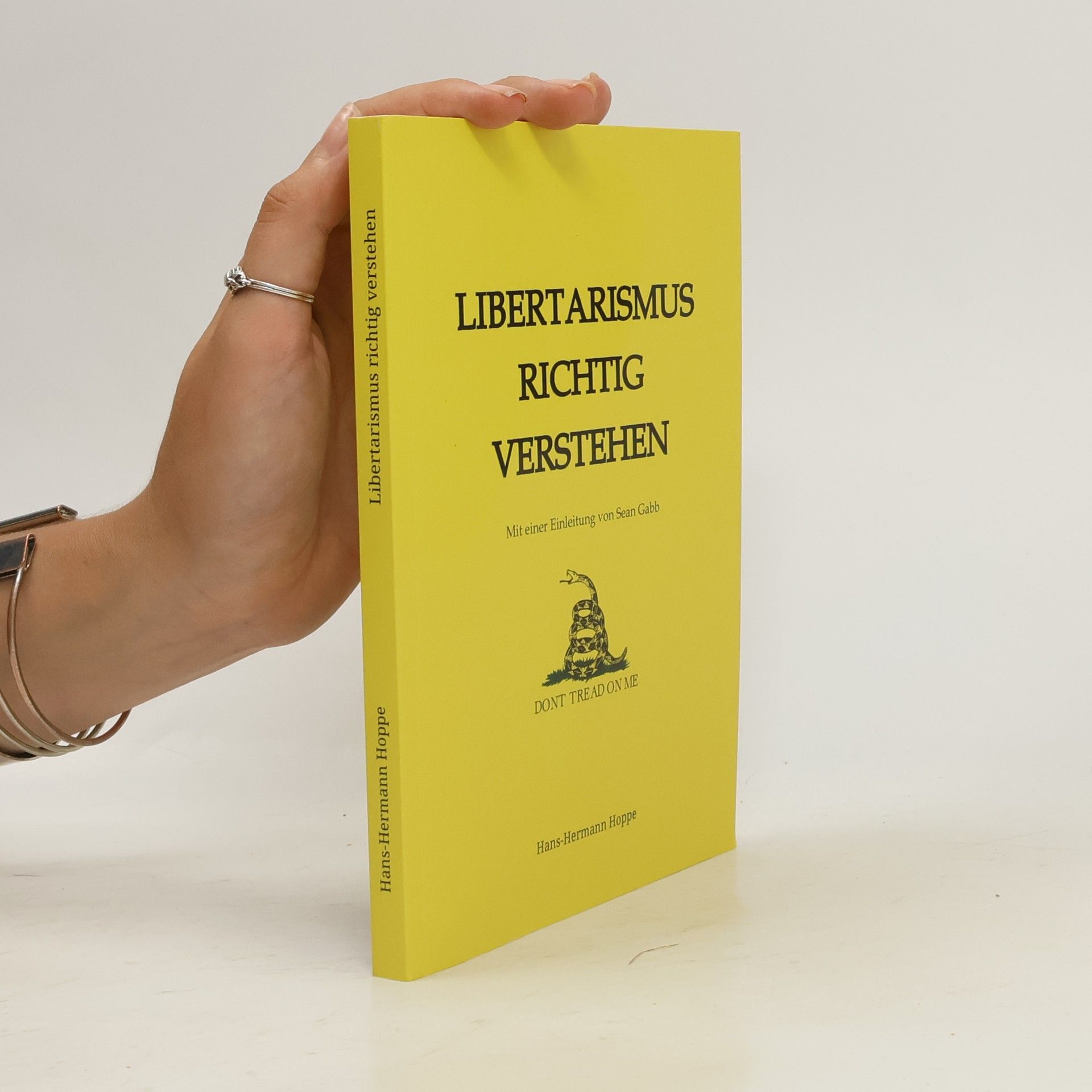
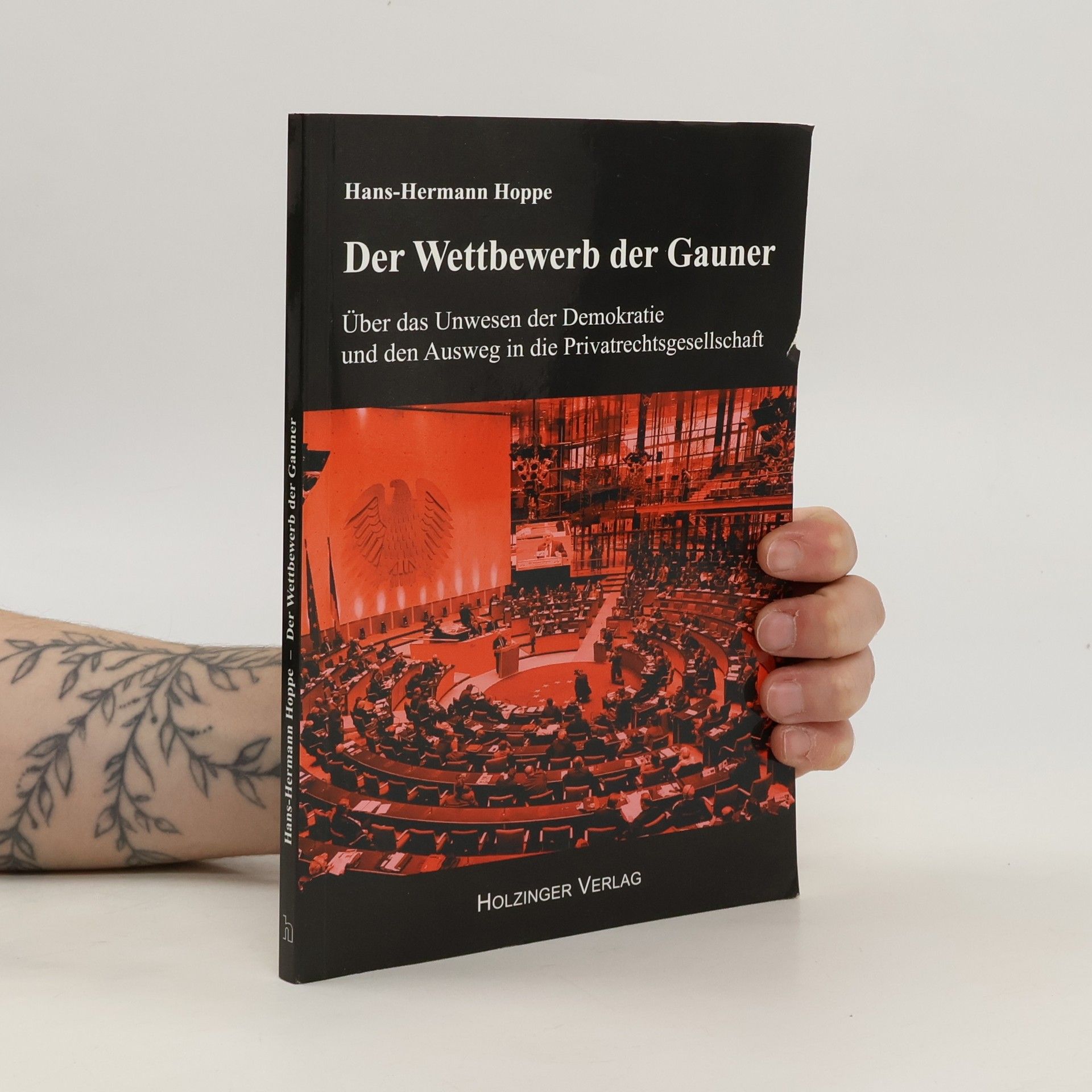

Demokracie: Bůh, který selhal
- 302 pages
- 11 hours of reading
Tato rozsáhlá kniha je pojednáním o historické transformaci Západu od omezené monarchie k neomezené demokracii. Revizionisticky dochází k závěru, že monarchie je se všemi svými nedostatky menším zlem než masová demokracie. Zaměřením se na tuto transformaci od soukromé k veřejné vládě je autor schopen interpretovat mnoho historických jevů, jako je rostoucí úroveň kriminality, degenerace norem chování a morálky, pokles bezpečnosti a svobody a růst megastátu. Hoppe navíc dekonstruuje klasickou liberální víru v možnost omezené vlády a vyzývá ke sblížení konzervatismu a libertariánství jako přirozených spojenců se společnými cíli. Autor dále hodnotí vyhlídky na dosažení přirozeného řádu svobody. Demokracie: Bůh, který selhal je brilantní dílo, které bude intenzivně zajímat vědce a studenty historie, politické ekonomie a politické filozofie.
Voluntarismus
Aufsätze, Texte und Zitate über die Freiheit
Das Ausmaß der willkürlichen Herrschaft und die damit einhergehende Bevormundung der Bürger vergrößert sich von Jahr zu Jahr. Ohne jede fachliche Qualifikation oder Berufsausbildung hat sich eine Heerschar politischer Gauner das Land untertan gemacht. Sie befehlen, die Menschen haben zu gehorchen. Die Herrschaftsform der offenen Macht des Demokratismus gewährt nicht dem Volk, über die Art seines Zusammenlebens zu entscheiden, sondern ermöglichen den Parteigänger ihre Gewaltphantasien auf Kosten der Bevölkerung zu verwirklichen. Solange sich nicht, frei nach Max Stirner, eine kritische Masse der Bevölkerung über die Eingriffe in ihre persönliche Integrität empört, wird es Institutionen geben, aus denen die Person nicht austreten kann. Das Ende der Bevormundung ist dann erreicht, wenn eine gewisse Masse der Beherrschten selbst nicht mehr bevormunden möchte. "Empören Sie sich", schreibt der Herausgeber, "seien Sie unregierbar!"
Über den demokratischen Untergang und die Wege aus der Ausweglosigkeit
Reden, Aufsätze und Interviews wider den links-grünen Zeitgeist
- 197 pages
- 7 hours of reading
Am Anfang war der Klang. Töne werden durch Bewegung erzeugt. Wo Bewegung ist, ist auch Energie. Jede Zelle in unserem Körper ist in Bewegung, ebenso das ganze Universum. Alle Materie – ob es sich dabei um den Mond oder unser Gehirn handelt – besteht aus reiner Energie: also aus Tönen. Klang wurde schon immer eingesetzt, um eine Ahnung von höheren Mächten zu bekommen und eignet sich auch heute hervorragend, um mit sich und seiner Umwelt in Harmonie zu leben. Hannes Sprado untersucht die Schnittstelle zwischen dem Gesang des Alls, den Harmonien der Mantras und dem Takt von Körper, Geist und Seele – elegant geschrieben und anschaulich erklärt. Eine faszinierende Expedition in die innere und äußere Welt, die unser Verständnis von der Wirkungsmacht des Klangs grundlegend verändert.
Kalt kommt der Tod
- 411 pages
- 15 hours of reading
Millionen Barrel Öl schlummern unerreichbar im Grund unter dem ewigen Eis der Arktis. Doch der Klimawandel reißt Löcher in die weiße Festung. Ein Mini-U-Boot hat die russische Flagge in den Meeresboden gerammt – und auf Spitzbergen bereitet eine skrupellose Privatarmee den Angriff auf das Öl vor. In dies hochexplosive Szenario jagt Hannes Sprado seinen Ermittler Phong Packer. Er soll die von einer Expedition nicht zurückgekehrte Tochter eines erfolgreichen Bremer Reeders finden. Doch statt auf die Wissenschaftlerin stößt er in der Eiswüste Spitzbergens auf einen exklusiven Callgirl-Ring, einen russischen Multimilliardär und viele blutige Spuren.
Ein Hotel, spätnachts: Hannes Sprado hat eine einprägsame Begegnung – mit Kakerlaken! Plötzlich tauchen sie auf und rennen quer durchs Zimmer. Als er endlich eine erwischt, kann er sie selbst mit roher Gewalt nicht außer Gefecht setzen. Sprado entwickelt immer mehr Respekt für diese Tiere. Denn Kakerlaken sind DAS Erfolgsmodell der Evolution. In 350 Millionen Jahren haben sie sich weder von Eiszeiten noch von Meteoriten beeindrucken lassen. Sie finden Nahrung in allem, was sie umgibt, und würden als Einzige einen Atomschlag überleben. Die amüsante Geschichte einer faszinierenden Spezies.
Der Wettbewerb der Gauner
Über das Unwesen der Demokratie und den Ausweg in die Privatrechtsgesellschaft
- 91 pages
- 4 hours of reading
Der Wettbewerb der Gauner, von Prof. Dr. Hans-Hermann Hoppe, erklärt die unerträgliche Problematik des Politischen. Wer immer noch darauf hofft, dass eines Tages Politiker regieren, welche keine falschen Versprechungen machen, welche die Steuergelder nicht verschwenden, nicht in die eigene Tasche wirtschaften, sollte dieses Buch lesen. Die Parteiendemokratie wird sich nicht verändern, so der Autor. Sozialstaaten sind die Quelle gesellschaftlcher Konflikte und sich zunehmend verschäfender Missstände. Wettbewerb ist nicht immer ein Vorteil. Ein Wettbewerb im Lügen und Abkassieren, im Täuschen und Tarnen, ein Wettbewerb von in der Regel minderwertigen Menschen kann keine guten Ergebnisse hervorbringen. Wenn, wie öfters beklagt wird, der Staat Beute der politischen Klasse sei, wird regelmäßig angeführt, dass sich die Damen und Herren Volksvertreter einen Selbstbedienungsladen eingerichtet hätten: zu hohe, unangemessene Diäten, steuerfrei Aufwandsentschädigungen, vorteilhafte Pensionsansprüche usw. Eine derartige Kritik gleicht einem Appell an Eierdiebe, sie möchten nicht ständig das Licht im Hühnerstall brennen lassen, es kostete nur unnötig Strom und die Hühner könnten nicht mehr einschlafen.
Demokracie, anarchie a omyly ekonomie
- 184 pages
- 7 hours of reading
- ukazuje, že demokracie nemusí být tím nejlepším politickým systémem - vysvětluje, proč se ekonomové tak často mýlí ve svých predikcích - vyvrací mýty o nutné roli vlády při poskytování bezpečnosti a dalších tzv.veřejných statků - kniha obsahuje výběr textů jednoho z nejvýznamnějších teoretiků liberalismu současnosti
